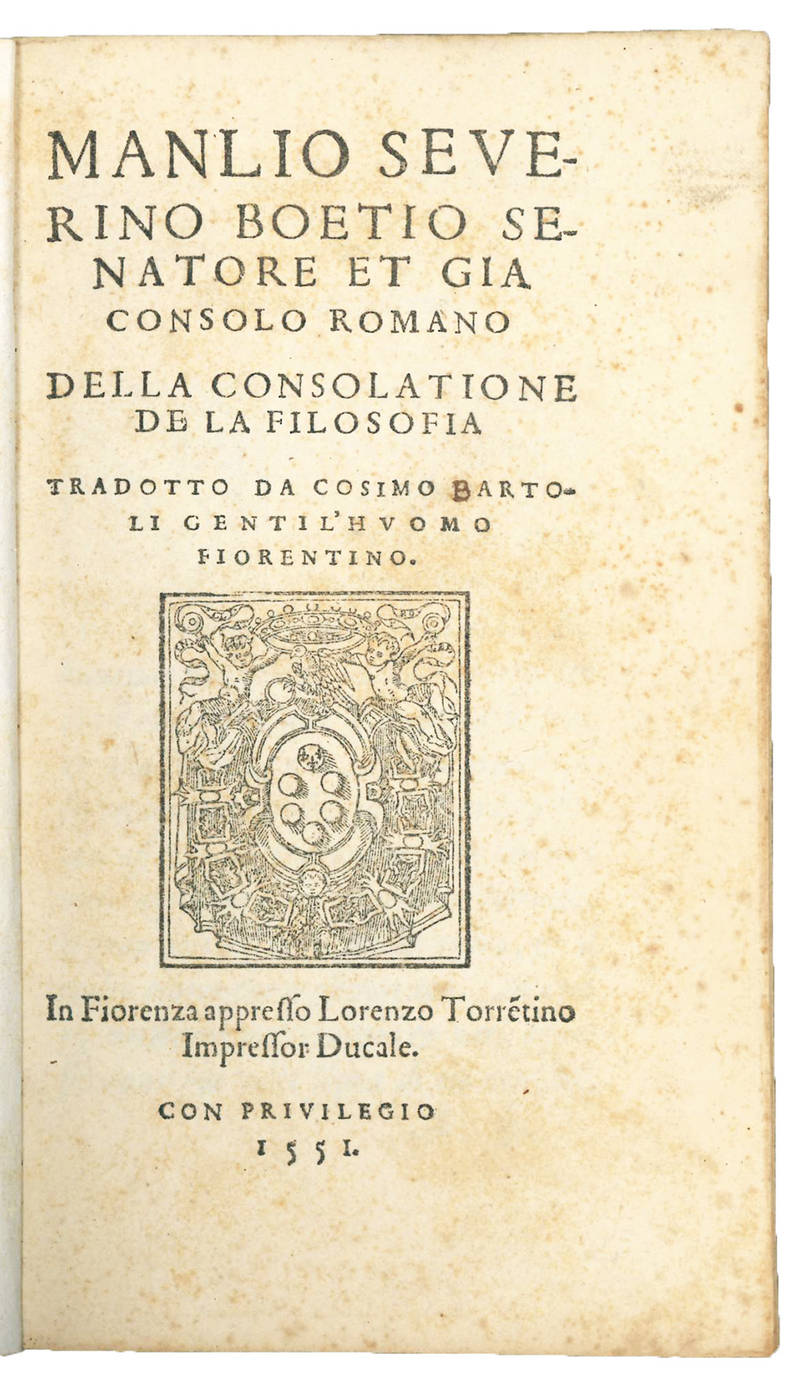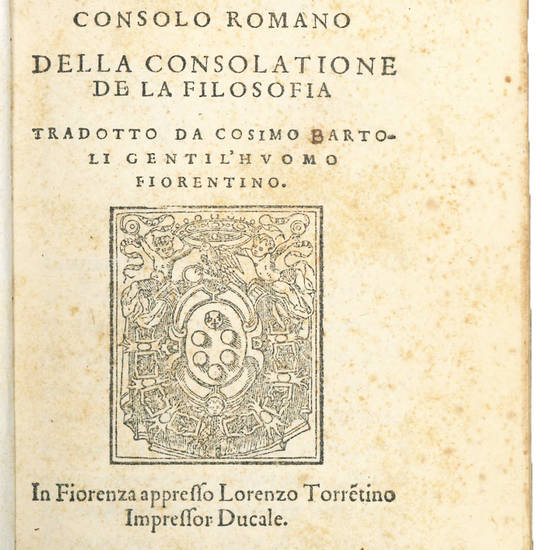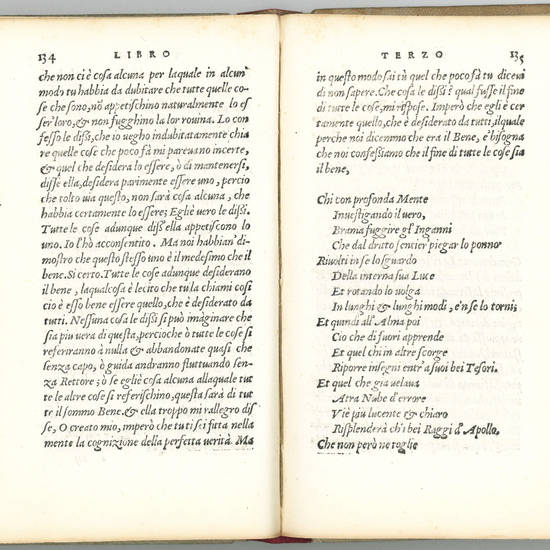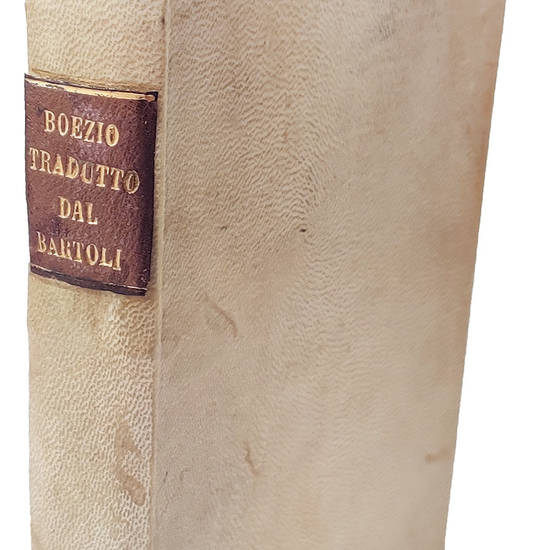8vo (165x100 mm). 237 [i.e. 239], [1] pp. Pages 78-79 repeated in numbering. Collation: A-P8. Woodcut Medici's arms on title page. Italic type. Woodcut decorated initials. Modern stiff vellum, lettering piece on spine. Some foxing and marginal staining, all in all a good copy.
First edition of the De consolatione Philosophiae in the Italian translation by Cosimo Bartoli. In the late 1540s, Emperor Charles V, in anticipation of his retirement from public life, requested to the Duke of Florence Cosimo I a new Italian version of Boethius' work. The duke entrusted the task to three leading Florentine academics: Ludovico Domenichi, BenedettoVarchi, and Bartoli. All three translations were published by Torrentino between 1550 and 1551. It was Varchi's that met with the greatest success as he better managed to maintain the alternation between verse and prose of the original text.
The volume has a double dedication: the first to Cosimo I is dated May 5, 1549, while the second to Ferrante Sanseverino, prince of Salerno, is dated January 1, 1550.
The reasons for such a revival of Boethius' work in the Florentine academic circles, beyond the imperial commission, are manifold. On the one hand, the ancient philosopher's fame for its extraordinary erudition, his reputation as a translator and commentator on Plato and Aristotle (as well as synthesizer of their philosophies), his influence on Dante, and the widespread belief that he was closed to the Christian spirit. On the other hand, the great consolatory value that that text exerted on men who were effectively exposed to the whims of other more powerful men and of fortune (cf. J. Bryce, Cosimo Bartoli (1503-1572). The Career of a Florentine Polymath, Genève, 1983, pp. 172-176).
Edit 16, CNCE6563; Moreni, pp. 171-173.
[11081]






